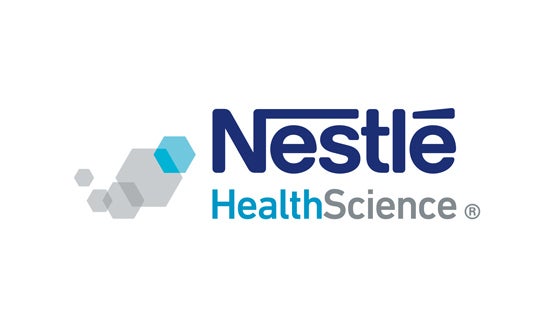
Medical Nutrition: a Cost-Effective Pillar in Therapeutic Interventions
- Health Technology Assessments successfully applied to medical nutrition to prove value
- Disease Related Malnutrition seen as a major hospital and community public health issue
- Europe-wide shift underway to implement protocols for nutritional screening, diagnostics and care
Lutry, Switzerland, – October 2012. At a Satellite Symposium organised by Nestlé Health Science at the annual meeting of Health Technology Assessment International (HTAi) in Bilbao (Spain), experts from clinical, regulatory and public health fields presented a strong body of evidence demonstrating the clinical and health economic value of medical nutrition interventions. The evidence showed that HTAs can be applied to medical nutrition, as a Europe-wide shift towards protocols for nutritional screening, diagnostic and care accelerates.
Disease-related Malnutrition into Hospitals and the Community
Professor Mercè Planas Vila, MD, Intensivist and Nutritionist from the University of Vic, Barcelona (Spain), welcomed the growing recognition in developed countries that the causes of malnutrition are multi-factorial, with disease at the forefront. She explained that ”disease-related malnutrition in hospitalised patients increase the risk of mortality and morbidity.”
Summarising the findings of the recent PREDyCES® Study of 1,597 patients in public and private hospitals in Spain, Professor Planas Vila stated that, “patients experiencing disease-related malnutrition showed higher incidence of complications, worse quality of life and functional status and increased mortality. In Spanish hospitals, almost one in four patients is malnourished, their cost is at least 25% higher.” Overall, the economic consequences of malnutrition are longer length of hospital stay, more readmissions and greater hospital costs.1
She also highlighted that malnutrition and DRM are not an issue purely confined to hospitals but also concerns patients in the community.2
Proving Value Through Health Economics Analysis
Professor Mark Nuijten, MD, CEO of Ars Accessus Medica and Founder of the Minerva International Health Economic Network, explained that by addressing malnutrition effectively, overall ‘value’ and cost effectiveness can be achieved by medical nutrition. Implementing nutritional support will result in a reduction in complications, length of hospital stay (resulting in reduced costs) and decreased mortality. He went on to explain that in nutrition it is important to apply the same health economic methodologies for assessing drugs by proving their incremental efficacy or effectiveness and cost-effectiveness.Professor Nuijten also summarised the study results relating to the health economic impact of medical nutrition compared to standard care in patients undergoing abdominal surgery in The Netherlands. The analysis showed that the additional costs of medical nutrition are more than balanced by a reduction of hospitalisation costs. Overall, an annual cost saving of € 40.4 million based on 160,283 abdominal procedures could be achieved per year.3
Value of Immunonutrition for Patients and Hospitals
Professor Jean-Blaise Wasserfallen, Medical Director of the University Hospital of Lausanne (CHUV) and Head of the Health Technology Assessment Unit, Switzerland, brought to the fore very strong data supporting the cost-effectiveness of immunonutrition in surgical treatments. He described immunonutrition as, “a special kind of nutrition containing arginine, fish oil and nucleotides, with immunomodulating properties designed to increase the immunology defences of the organism”. Professor Wasserfallen presented efficacy and cost-effectiveness evidence from studies made in the US and Switzerland4 showing a positive impact of immunonutrition on the reduction of post-operative infection rates and the length of hospital stay by 2 to 3 days per patient in high-risk patients such as those considered for gastrointestinal cancer surgery.5Professor Wasserfallen concluded that nutrition can be a cost-effective pillar in therapeutic interventions; in particular, he noted that immunonutrition can be considered as a health care technology that could become an integral part of global hospital strategy. He added, “Nutrition is still an under-valued treatment modality,” whilst acknowledging that recognition of its value is growing.
EU taking Action against Malnutrition
The increasingly proactive approach to tackling malnutrition at a European Regulatory and Public Health level was explained by Patrick Coppens, Director International Food and Health Law and Scientific Affairs, EAS and President of the Belgian National Food and Health Plan Task Force on Under-nutrition.
Mr Coppens outlined that the European Public Health Authorities are now looking beyond the obesity issue to also take action to address malnutrition in an ageing society. He explained that the European Commission has made Malnutrition one of the five priorities for 2012/2013 ‘Innovation Partnership for Active and Healthy Ageing’.6 Malnutrition is widespread in Europe and it is estimated that over 20 million people are at risk of malnutrition in the European Union and that nearly 50% of malnourished patients are simply not treated.” 7
He outlined that the European Commission “intends to define guidelines for multidisciplinary intervention to prevent and manage malnutrition, with a focus upon nutritional aspects. They will especially support and promote the development of evidence-based guidelines for primary care providers.”
# # # # #
References
1. Álvarez-Hernández J, Planas Vila M, et al. Prevalence and costs of malnutrition in hospitalized patients: the PREDyCES® Study. Nutr Hosp. 2012;27(4):1049-10592. Elia & Stratton 2009
3. N Freijer K, Nuijten MJ. Analysis of the health economic impact of medical nutrition in the Netherlands. Eur J Clin Nutr 2010; 64 (10): 1229-34.
4. Strickland A, J Parenter Enteral Nutr 2005;29:S81-S91; Drover JW, J Am Coll Surg 2011
5. Cerantola Y, BJS 2011;98:37-48
6. http://eur-lex.europa.eu/LexUriServ/LexUriServ.do?uri=COM:2012:0083:FIN:EN:PDF
7. www.medicalnutritionindustry.com/uploads/content/ONS%20dossier%202012/Dossier2012FINAL2012-09-04.pdf
About Nestlé Health Science
Nestlé Health Science was formed in January 2011 to spearhead the development of science-based personalised nutritional solutions. Building on its core HealthCare Nutrition business, the company has ambitions to address chronic conditions in the area of Gastrointestinal Health, Metabolic Health and Brain Health. Nestlé Health Science offers nutritional solutions for people with specific dietary needs related to illnesses, disease states or the special challenges of different life stages. Nestlé Health Science is a wholly owned subsidiary of Nestlé S.A., with worldwide headquarters in Lutry, Switzerland. For more information, visit www.nestlehealthscience.com.
